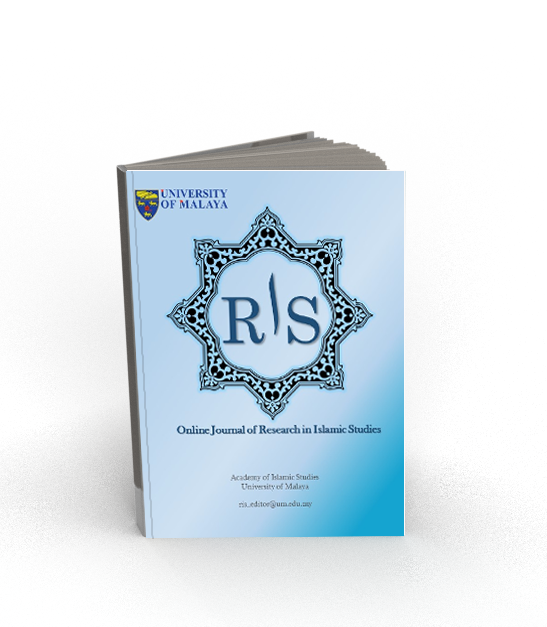Ibn Taimiyyah’s View of Al-Tasyabbuh: Analysis of The Book Iqtida’ Al-Sirat Al-Mustaqim li Mukhalafati Ashab Al-Jahim
Keywords:
al-tasyabbuh, Ibn Taimiyyah, religious pluralism, social interactionAbstract
The issue of al-tasyabbuh (imitating) that had been rooted within the Islamic society in Malaysia nowadays are getting more serious. This issue can weaken the aqidah and destroy the personality of a Muslim in a subconscious manner. Excessive toleration on imitating nonMuslims could pose a religious pluralism that is forbidden (in Islam). On uncovering this issue on al-tasyabbuh, Ibn Taimiyyah is one of the earliest scholars that had written a specific writing regarding this issue, that is a book by the name Iqtida’ al-Sirat al-Mustaqim li Mukhalafati Ashab al-Jahim. Therefore, this is a research that is discussing about Ibn Taimiyyah’s view on this issue of al-tasyabbuh in the book al-Iqtida’. This research comprises of Ibn Taimiyyah’s biography and the simplified content of his book and his method on discussing about al-tasyabbuh. On accomplishing this objective, the content analysis method was applied to identify Ibn Taimiyyah’s view on al-tasyabbuh. Research shows that Ibn Taimiyyah had a serious concern onto this issue, especially when imitating the non-Muslims. He divided this issue into three parts that is, the prohibition of imitating non-Muslim, Satan and the Bedouins and A’jam (non-Arabs). But there are some of his views that is impractical due to current developments and sociocultural changes currently. There are some cultural aspect that cannot be avoided, such as the way that people dress (non-religious dressing) and technology. This is because majority of the Muslims are consumers and they all use the technologies that had been developed by nonMuslims. Thus, Muslims should be aware of the issue of al-tasyabbuh so that the social interaction with the non-Muslims does not deviate from the Syara’ (Islamic laws).
Downloads
Downloads
Published
How to Cite
Issue
Section
License
Copyright Notice
By submitting manuscripts to the Online Journal of Research in Islamic Studies (RIS), authors agree to transfer copyright to the journal. However, authors may republish their work or grant others permission to republish it; in which case it should be accompanied by a proper acknowledgment that the work was originally published in the Online Journal of Research in Islamic Studies (RIS). The journal adopt CC-BY-NC licence which authors may also share and distribute their article anywhere of non-commercial website, social media and repositories immediately on publication.
Authors may also reuse the Abstract and Citation information (e.g. Title, Author name, Publication dates) of their article anywhere at any time including social media such as Facebook, blogs and Twitter, providing that where possible a link is included back to the article on the journal site.












